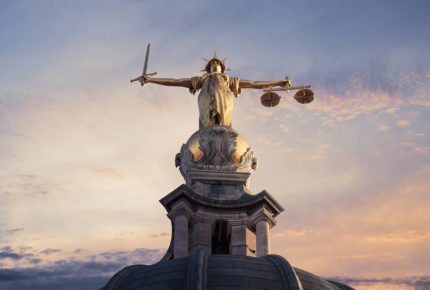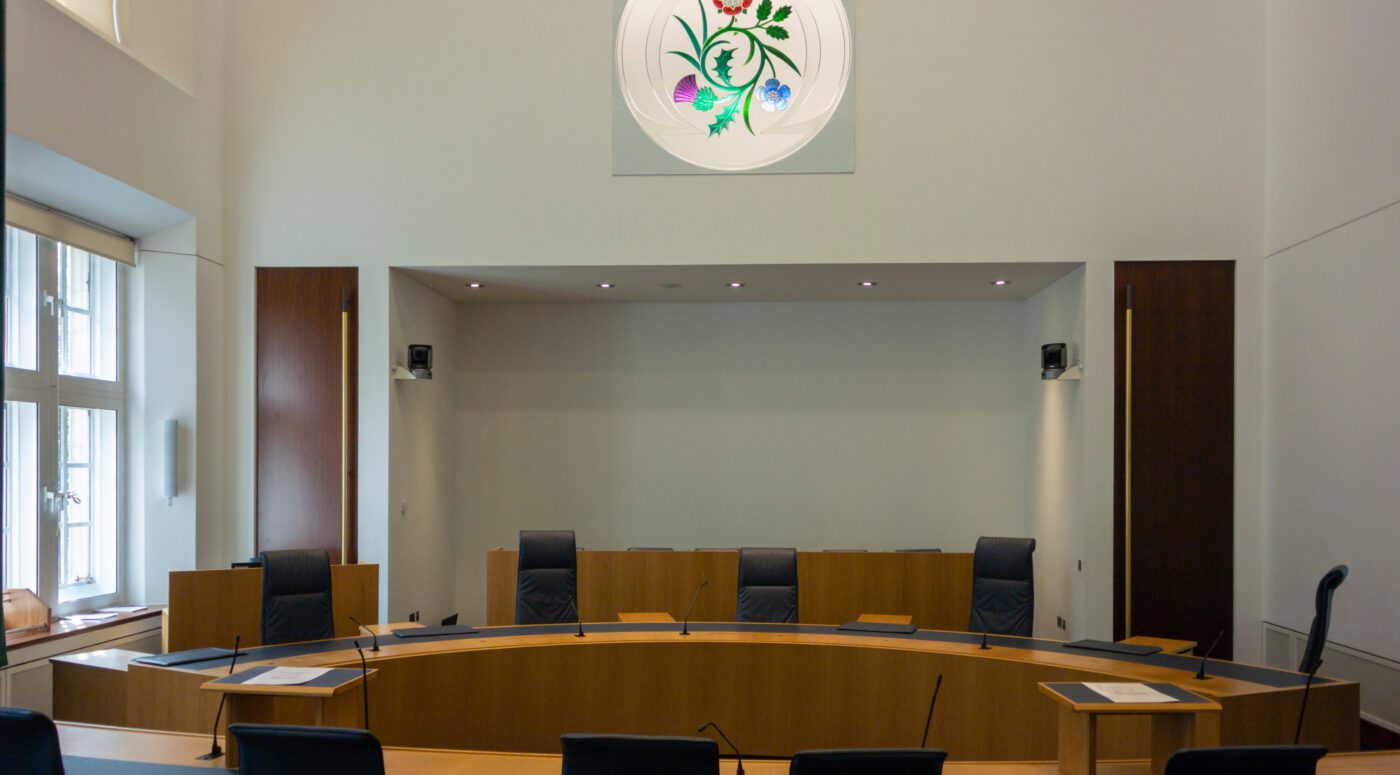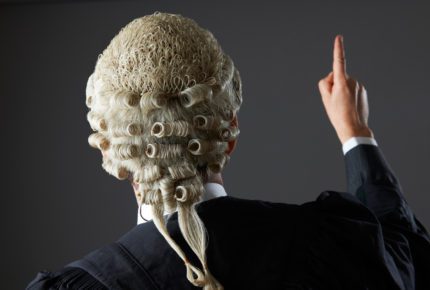

If you are a defendant at a jury trial, you might be asking yourself what are the possible outcomes in your case. Looking at the inscrutable faces of the 12 members of the jury from the dock, it can be hard to tell what they are thinking. Seeing the variety of people before you, you may also be wondering how they could ever agree on a verdict. The answer to that is that sometimes they don’t! It can take some juries many days to reach a decision. And in some cases, reaching a unanimous or majority verdict is impossible. That is what is known as a hung jury.
In what circumstances do you have a trial by jury?
Trial by jury can only take place in the Crown Court. Therefore a trial by jury usually only occurs when you have been charged with an indictable only or an either way offence. Summary only offences will be heard in the Magistrates’ Court, where they are heard by magistrates or a District Judge. However, on occasion, summary only offences can be heard in the Crown Court where they are linked with other more serious offences that are to be heard in the Crown Court. If you are a young person under the age of 18, your case will not be heard before a jury.
What is a hung jury?
A hung jury occurs where the jury fails to agree on a verdict. At the conclusion of the trial, after receiving directions from the judge, the jury will retire to consider their verdict. Initially, a jury will be advised that they need to reach a unanimous decision (i.e. one where they all agree) in respect of whether the defendant is guilty or not guilty.
When the jury returns to the courtroom, the foreman will be asked to tell the court whether the jury members were all able to agree on a verdict. If the answer is no, and the judge considers that the jury has been deliberating for a sufficient length of time, taking account the complexity of the case, the jury will be given what is known as the ‘majority direction.’ The minimum length of time that must elapse after the jury retires before the judge can give a ‘majority direction’ is 2 hours and 10 minutes, but in practice a judge will usually expect a jury to deliberate for significantly longer than this prior to concluding that they cannot all agree.
A ‘majority direction’ is where most but not all of the jurors agree on the verdict. At the outset of a trial the jury will be composed of 12 ordinary men and women. However, it is not uncommon for one or more jurors to be discharged over the course of the trial. This could be due to illness or another good reason. In order for the trial to continue, there must be at least nine jurors. If all 12 jurors are still present at the end of the case, a majority verdict can be reached where one or two jurors disagree. If there are 10 or 11 jurors, all but one must be in agreement. Where there are only nine jurors, they must all be in agreement. Where an agreement cannot be reached on these terms, there is a hung jury.
In the case of a hung jury, the jury will often send a note to the judge explaining that they have been unable to reach a unanimous conclusion. If the judge accepts that the jury will not be able to reach an agreement by sitting for longer, they will discharge the jury.
What happens when you get a hung jury?
When there is a hung jury, the state will consider whether to hold a retrial. Whilst there is a presumption in favour of the prosecution seeking a retrial, they must first consider whether it is in the public interest for a second trial to take place. When deciding whether to retry the case, the CPS will consider whether it is worthwhile to spend public resources on having another trial. They will also take into account the following factors:
- The merits of the case: how strong is the evidence? A hung jury might have occurred because the evidence in the case is weak. This might suggest that a similar verdict is likely to occur at retrial.
- The likely reasons for the jury’s failure to reach a verdict: a jury’s deliberations occur in private, therefore the CPS will not know the reasoning of individual jury members in reaching their respective decisions. Nonetheless, in some cases, it might be obvious why the jury was unable to reach their decision unanimously. For example, perhaps the judge’s directions to the jury on the law were unclear. A factor such as this could mean a retrial is more likely.
- The public interest in seeking a verdict: in some cases, a conclusive finding of guilt or innocence is strongly in the public interest. Say, for example, someone is accused of a sex offence. The stigma surrounding such an offence is likely to linger after a trial with a hung jury. Therefore, the defendant might experience discrimination on the basis of public assumptions regarding their culpability, in spite of the fact that there has been no public finding of guilt. At the same time, whilst the defendant might, if guilty, pose a risk of committing further similar offences, in the absence of a conviction, no measures could be taken to protect the public. In such a case, the public interest is likely to suggest that a retrial should be held.
- The interests and views of the victim(s): the CPS is more likely to order a retrial in a case where the victims are strongly motivated to seek justice. Other victims may be reluctant to give evidence for a second time and keen to move on with their lives. Victims may be put off by the uncertainty of the case going to trial for a second time, particularly if the prospects of success appear to be marginal.
- The views expressed by the trial judge (if any): if the judge made comments regarding the poor quality of the evidence, or lack of credibility of prosecution witnesses, these are factors that might suggest that it would not be worthwhile holding a retrial. Unless, however, the trial judge criticises aspects of the preparation of the case, which could be fixable. For example, perhaps the judge alludes to a further line of enquiry that could be picked up by the police. In those circumstances, the judge’s views might influence the CPS to hold a retrial.
- Prosecutorial opinion: the prosecutor or the barrister instructed by the CPS will be asked by the CPS to provide their view on the case. Whilst the CPS will almost certainly ask a different prosecutor to take on the case if there is a retrial, the views of the original prosecutor will be influential in understanding the strengths and weaknesses of the case.
- The views of the police: the CPS will also consult with the police officers involved in preparing the case to ascertain their opinion on the evidence, and whether there should be a retrial.
According to CPS guidance, the decision of whether to request a retrial should be taken as soon as possible after the first trial has concluded. The time for making this decision is up to seven days if the defendant is in custody, or up to 14 days if the defendant is on bail. During this time period, the CPS will consult with witnesses regarding their willingness to give evidence for a second time, and their availability for a retrial.
If there is a hung jury at the second trial of the same matter, the presumption is that there will not be a further trial unless exceptional circumstances apply. Examples of such exceptional circumstances could be where there has been jury interference in both trials, or where important new evidence comes to light following the second trial. In a Court of Appeal case, a defendant attempted to argue that a decision to hold a third trial amounted to an abuse of process. He was unsuccessful and the conviction was upheld, but the court did note that ‘extreme caution’ should be exercised when reaching the decision to hold a third trial.
Where to get further help?
If you have been tried and the jury was unable to reach a verdict on your case, the good news is that there are probably some issues with the prosecution’s case and therefore you may have a good chance of being acquitted the second time around. Having the right legal team could make all the difference. You are not obliged to keep the same criminal defence solicitor, and in fact there could be some advantages to having a fresh pair of legal eyes to look over the case. At Stuart Miller Solicitors, our experienced team of experts will go the extra mile to help you assess the weaknesses in the prosecution’s evidence and assist you in mounting the best possible defence. Contact us today.
OUR COMMITMENTS TO YOU:
-
Responsive
A legal expert will consult you within 24 hours of making an enquiry.
-
Empathetic
We will always treat you with trust, understanding and respect.
-
Specialised
Your case will be handled by an expert who specialises in your type of offence.
-
Proactive
We will take early action to end proceedings as soon as it is practically and legally possible to do so.
-
Engaged
You will be kept updated on your case at all times. We will provide a named contact available to answer your questions.
-
Caring
We understand this is a difficult and stressful time for you and your family. Our team will support you every step of the way.
-
Tenacious
We will never give up on your case. We fight tirelessly to get you the best possible outcome.

